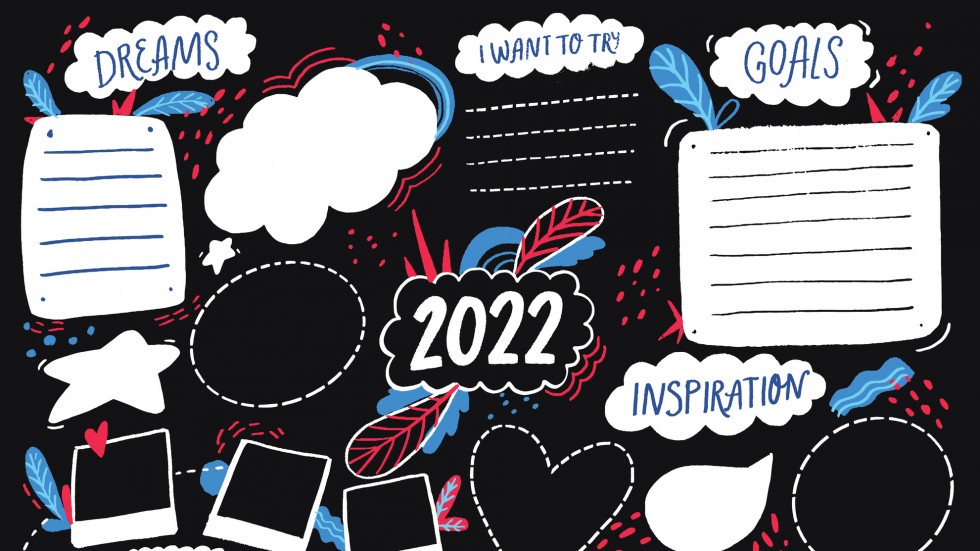
Setting Goals
"Be clear and specific."
When it comes to New Year’s resolutions, career coach Laura (Mitchell) Treonze ’96 says not to wait for the start of a new year to set a goal. “If you are truly committed to making any shift in your life, the best time to start is now.” As the first month of 2022 wraps up, we checked in with Treonze, chief life strategist at LMT Consulting, for a few tips on goal setting, managing time and creating vision boards. Treonze also shares the question she asks herself each day—and how that question relates to Stonehill's Academic Convocation tradition.
What is one tip for approaching goal setting, either personally or professionally?
Get clear on what you want and be specific. Most people know what they don’t want, but they're vague about what they want. The more specific you are about goals the more likely they are to happen. If you’re not sure about what you want, start by writing what you don’t want and then flip it. For example: If you don’t want another stressful year, ask yourself, “What do I want to experience instead of stress? What would this new feeling allow me to achieve?” Goal setting is about the integrity of your word to yourself.
You often talk about managing energy instead of time. Why is this important and how we can we work to accomplish this?
So many people want to manage their time. However, if we look at managing our energy, we can get more done. We intuitively know what things come naturally to us, but with competing messages—from work, family, friends, online—we doubt our instincts. As a result, we do more of what we think we “should" do, and we don’t have time or energy to do what we really want. If we focus on doing more of the things that increase our energy and leverage the rest, we find there is time to get more accomplished.
In October, you gave a virtual presentation to our alumni community about vision boards. What is the purpose of a vision board and how can one be useful?
A vision board is simply a visual representation of your goals. Our brain is built to filter the information we receive based on what we put in front of it. A vision board helps keep what you want at the forefront of your mind.
What are some guidelines for creating a vision board?
There are lots of YouTube videos and blog posts touting the “right” way to make a vision board. Don’t believe the hype. Some people put words on their vision board and others only have pictures; some use poster board and others make theirs online; some people believe in annual vision boards and others prefer to include their 5-year goals—the reality is they are all correct. The only thing that matters is that you love it.
Did your experience at Stonehill help pave the path to your career today?
Yes, but not in a traditional way. I was a political science major, so that doesn’t tie in directly with my work today. However, the faculty and staff encouraged me to think more broadly and do more than I thought possible, providing me with infinite opportunities to grow as a person. These experiences are a huge part of who I am and what I share with my clients.
You are credited with being the motivating force behind the College’s Academic Convocation tradition. What did you learn from that experience?
To stay curious and keep asking questions, particularly, “What would it take for this to happen?” To help get Convocation re-established in my senior year, I had to turn to the directory, make phone calls, and ask faculty and staff if they would attend the event. To my surprise, they said, “Yes!” Here we are 25 years later, and the event continues. I use that question every day in coaching and life—What would it take for this (whatever the case may be) to happen?
